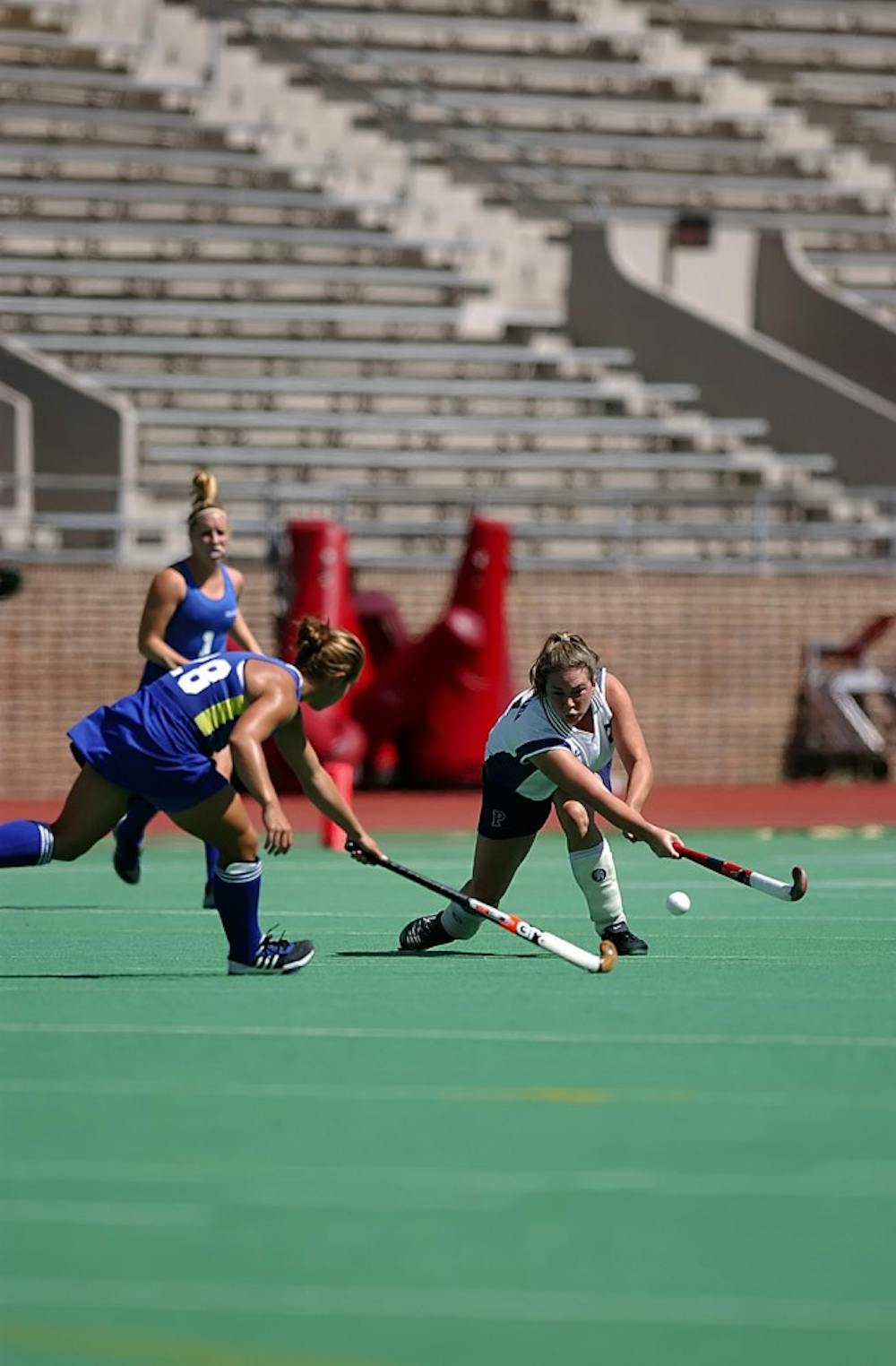
Ever since my elementary school years, my mother has often implored me to follow an old family adage: “Take pride in everything you put your name on.”
While pondering the potential addition of an AstroTurf field for the varsity field hockey team, the Penn administration should consider the same advice.
If the AstroTurf isn’t part of Penn Park when it’s unveiled this summer, it realistically won’t be built any time in the near future. It’s time for Penn to either step up in support of field hockey or step aside.
In 2004, Penn replaced Franklin Field’s AstroTurf with the softer, safer and more grass-like Sprinturf. That decision was a no-brainer because Sprinturf is now preferred for almost every sport.
The notable exception is field hockey, where the faster-paced AstroTurf carpet surface is the overwhelming standard.
It’s no coincidence Penn field hockey has struggled to compete in the Ivy League since winning the title in 2004.
Penn coach Colleen Fink told The Daily Pennsylvanian that eight of the 11 Division I field hockey teams without an AstroTurf field are somewhere in the bottom 20 programs in the league. North Carolina coach Karen Shelton added that “nobody with a serious program plays on anything but AstroTurf or a carpet surface.”
An AstroTurf field was part of the original plans for Penn Park, and while it’s still under consideration, Penn is leaning toward adding two Sprinturf fields instead.
The utilitarian advantages of Sprinturf are compelling enough that Penn might be entirely justified in scrapping the AstroTurf project.
The two surfaces should have similar costs, and while Sprinturf fields are preferable for a wide array of campus activities — including varsity, club and intramural teams and student recreational use — AstroTurf would mostly be advantageous for just the 22 women on the field hockey team.
Investing in field hockey won’t provide a financial return, and it won’t have any palpable impact on school spirit or alumni donations — but those aren’t the principal goals of Ivy League athletic departments anyway.
As Athletic Director Steve Bilsky put it last fall, “You primarily have an athletic program for the educational value for the people who are participating.”
But what kind of experience will the field hockey team have when it is perennially struggling to compete in the Ivy League or even convince other Division I schools to play road games on the wrong surface?
Until now, Penn hasn’t had a realistic alternative for an AstroTurf venue, but the final allocation of Penn Park will be a barometer of the University’s commitment to providing the program with an even playing field in Ivy League competition.
Penn might be right to consider the bigger picture rather than cater to the needs of a few. But if the administration isn’t even prepared to provide a single specialized surface amidst the perfect storm of eastward expansion, then maybe Penn field hockey should go the way of ice hockey and be dropped from varsity to club team status.
Ultimately, Penn should either take pride in the field hockey program or not put its name on it at all.
ARI SEIFTER is a senior computer and cognitive science major from Ellicott City, Md., and is former Associate Sports Editor of The Daily Pennsylvanian. He can be contacted at dpsports@theDP.com.
The Daily Pennsylvanian is an independent, student-run newspaper. Please consider making a donation to support the coverage that shapes the University. Your generosity ensures a future of strong journalism at Penn.
DonatePlease note All comments are eligible for publication in The Daily Pennsylvanian.





